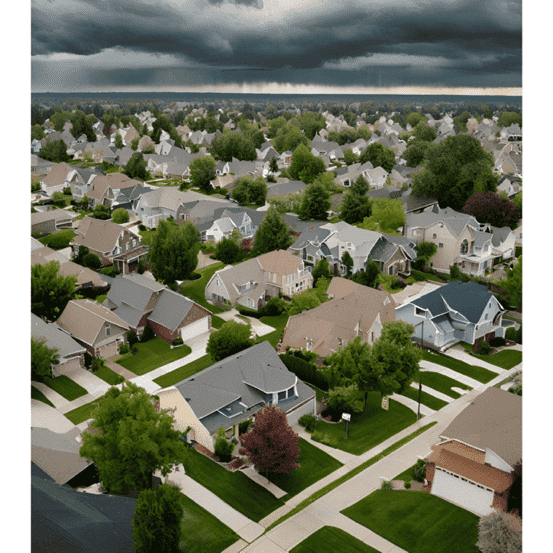Switzerland Faces Record Low Rental Availability
FSO data reveals a historic decline in rental properties in Switzerland, with over 200 cities reporting no homes available for rent.
The Swiss real estate market is currently experiencing an unprecedented crisis, as revealed by the latest data from the Federal Statistical Office (FSO). The availability of houses and apartments for rent has plummeted to a historic low, leaving many potential renters in a state of bewilderment. In a staggering revelation, analysts discovered that over 200 municipalities across Switzerland reported a complete absence of rental properties.
As of June 1, 2024, the total number of homes available for rent or purchase stood at a mere 51,974, marking a significant decline of 5.1 percent (or 2,791 homes) compared to the previous year. This translates to a vacancy rate of just 1.08 percent, the lowest ever recorded in Swiss history, and the fourth consecutive year of declining availability. Alarmingly, half of the 26 cantons in Switzerland reported vacancy rates dipping below the critical threshold of 1 percent, a benchmark that authorities use to declare a “housing shortage.”
The cantons of Zug, Obwalden, Geneva, and Zurich are particularly hard-hit, with vacancy rates of 0.39 percent, 0.44 percent, 0.46 percent, and 0.56 percent, respectively. In stark contrast, Jura, Solothurn, and Neuchâtel emerged as the least affected regions, boasting vacancy rates of 2.98 percent, 2.37 percent, and 1.68 percent.
The FSO data further underscores the severity of the situation, revealing that over 200 towns, including Presinges and Laconnex in Geneva, Loney and Vaux-sur-Morges in Vaud, and Schlatt in Zurich, had no homes available for rent or purchase. On the other hand, towns in Jura, such as Moutier (6.73 percent), Valbirse (7.99 percent), and Romont (7.38 percent), exhibited a more favorable housing landscape.
The ramifications of this housing crisis are particularly pronounced for renters, as the number of available rental properties in Switzerland has decreased by 8.6 percent over the past year. In contrast, the inventory of homes for sale has risen by 9.5 percent, leading to a dramatic surge in rental costs—the fastest increase observed in three decades.
Compounding the issue, data from Raiffeisen, a prominent Swiss bank, indicates that approximately one-third of planning permissions for new housing developments were rejected in the first quarter of 2024. In response to this pressing crisis, the Swiss parliament has introduced new measures aimed at alleviating the housing shortage. A recent proposal, submitted on September 10, seeks to relax restrictions on constructing homes near motorways, airports, and rail lines, provided that at least one room adheres to existing noise pollution regulations.
As the Swiss government grapples with this multifaceted challenge, the question remains: will these measures be sufficient to reverse the tide of this housing crisis, or will the Swiss populace continue to navigate a landscape of dwindling options and escalating costs? Only time will tell, but one thing is certain—the quest for affordable housing in Switzerland has never been more daunting.
Switzerland Faces Record Low Rental Availability
Greece: Europe’s Fourth Cheapest Real Estate Market
Greece: Europe’s Fourth Cheapest Real Estate Market
Explore why Greece stands out as one of Europe’s most economical real estate markets, attracting savvy investors seeking value and opportunity.

Surge in Scottish Home Sales: UK Real Estate Update
Surge in Scottish Home Sales: UK Real Estate Update
Scottish home sales and enquiries surged in October, with a third of surveyors reporting the fastest growth in years, signaling a vibrant market.

Spain: A Leading Market in European Real Estate
Spain: A Leading Market in European Real Estate
Explore how Spain is becoming one of Europe's most promising real estate markets, excelling in retail, logistics, and hotel sectors for strategic growth.

Greece Real Estate Market: Rise of Serviced Apartments
Greece Real Estate Market: Rise of Serviced Apartments
Explore the growing demand for serviced apartments in central Athens, where integrated hospitality services attract savvy investors in the Greece real estate market.

Home Prices Hit by Climate Change, J.P. Morgan Warns
Home Prices Hit by Climate Change, J.P. Morgan Warns
J.P. Morgan analysts reveal a negative link between climate risk and home price appreciation. Explore the emerging trends and their impact.


